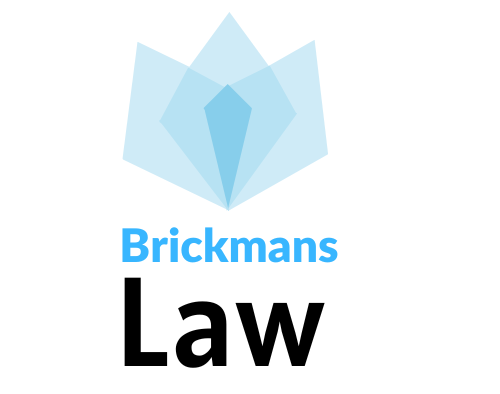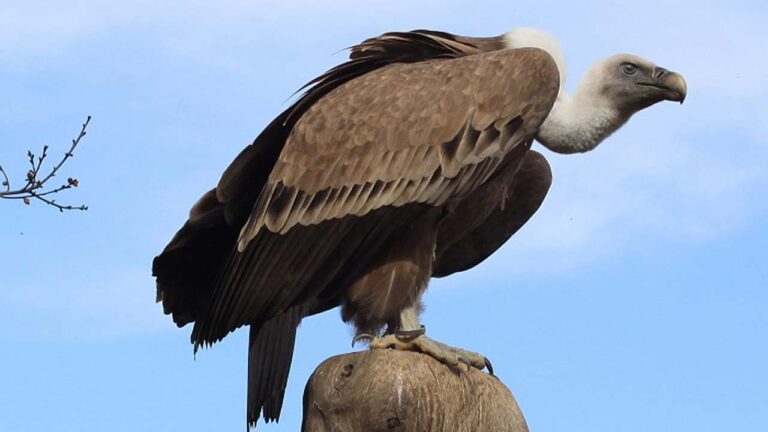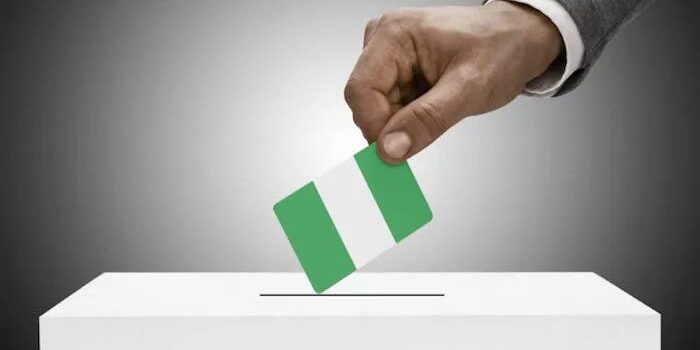The Role of INEC in Party Primaries: A Critique of The Electoral Act 2022
It is no longer news that President Muhammadu Buhari has signed the much-awaited and controversial Electoral Act Amendment Bill into law. After several months of withholding assent, the President finally signed the 2022 Electoral Act Amendment Bill into law, on February 25th 2022. This new law has introduced major changes and innovations into the Nigerian electoral system.
Among the innovations introduced by the Electoral Act 2022 (hereinafter referred to as the “Act”) is the provision on early conduct of party primaries. Under the Act, political parties are mandated to submit the list of their sponsored candidates who have emerged from valid primaries conducted by the party, not later than 180 days before the date appointed for a general election. This is in contrast to the former Act which prescribed that this submission should be done not less than 60 days before the date of general elections.Although laudable, this change was met with some resistance by political parties who have since pleaded with the electoral body for an extension of the timeline. Most political parties have however, in defiance delayed the conduct of their primaries until a week to the deadline. Going by the frenzy at which parties are now conducting their primaries and the emerging allegations of foul play, we believe it is expedient to consider the role of the INEC in the conduct of party primaries.
What is a party primary?
A party primary is an election conducted by political parties to nominate their candidates for the General Election ballot. According to the Timetable and Schedule of Activities for the 2023 General Election released on Saturday 26th February 2022, party primaries is to hold between April 4th – June 3rd. In other words, political parties are expected to nominate their candidates for any of the elective offices in the forthcoming General Elections, within the period of 61 days ie. April 4h -June 3rd.
The law does not impose any mode for the nomination of these candidates. It however provides that the procedure for the nomination of candidates may be by direct, indirect primaries or consensus. It further stipulates guidelines for the conduct of primaries via any of the procedures. The Act provides that political parties shall not impose any nomination qualification or disqualification criteria that is unconstitutional, but prohibits political appointees from engaging in party primaries either as a voting delegate or aspirant. This S84 (10) has sparked much controversy with some condemning it as unconstitutional and others affirming its constitutionality. Consequently, barely three weeks after the Electoral Act Amendment Bill was signed into law, a Federal High court sitting in Umuahia, the Abia State capital, nullified Section 84 (12) of the Act and ordered the Attorney General of the Federation to delete it. The Appeal court has since nullified this judgement of the lower court on technical grounds. Away from this controversial provision, any party who wishes to conduct their primaries is required to give INEC notice at least 21 days before the congress or meeting. Failure to do so will render the congress or meeting invalid, and consequently nullify the primaries so conducted.
The Role of INEC in Party Primaries
Sometime last year, during a meeting between the House of Representatives Committee on Appropriations and the INEC chairman, the committee inquired about INEC’s requirements for the 2023 elections as well as the cost of direct or indirect primaries. In his response, the INEC chairman Mr Mahmood Yakubu told them that the role of INEC in direct or indirect primaries is very minimal. He said the responsibility lies with all the political parties, and that the conduct of primaries is the role of political parties and not INEC.
Indeed, the responsibility for the conduct of party primaries rests entirely on political parties with little or no intervention from INEC. INEC only has a monitoring role in the conduct of party primaries. This role is activated when parties notify the commission of any convention, congress, conference or meeting convened by the political party for the purpose of nominating candidates for the General Election ballot.
Accordingly, S83 of the Act provides that the Commission shall keep records of the activities of all the registered political parties. The commission may seek information or clarification from any registered political party in connection with any activities of the political party which may be contrary to the provisions of the Constitution or any other law, guidelines, rules or regulations made pursuant to an Act of the National assembly. Such enquiry may be directed to the Chairman or Secretary of the political party at the national, state, local government or area council or ward level as the case may be.
In other words, INEC only has a supervisory role over the conduct of party primaries. Their duty is to ensure that the party conducts their activities within the Constitutional limits, the Electoral Act and other Regulations and Guidelines issued by the Commission. Also, the Commission has the right to attend and observe any party congress or convention, with or without any notice to the political party. On a lighter note, a party member who suspects any foul play within the party in terms of nominating candidates for elective offices, can inform the INEC which would in turn investigate by seeking any information or clarification from the affected political party in line with the activity so complained about. A party that fails to provide the required information or clarification shall be liable to a fine of not more than N1, 000, 000 (One million naira).
Following the increasing allegations of non-compliance with the Constitutional provisions and other applicable laws in the ongoing party primaries across the federation, it is not out of place to say that the Commission is now more circumspect in discharging its monitoring role. Besides, any aspirant who believes that the law has not been complied with in the conduct of the election may address the Federal High Court for redress.
Implications of S83 Electoral Act on the conduct of party primaries
Some of the implications of this provision on the conduct of party primaries is that political parties are not entitled to receive funding from INEC for the conduct of their primaries, nor is INEC under any duty to provide them with materials for the conduct of their primaries. Also, the Commission is not expected to recommend candidates for the conduct of party primaries. They are not required to send delegates for the purpose of nominating candidates in party primaries. They may however send officers to observe the proceedings. Moreso, INEC officials are not obligated to assist political parties in the conduct of their primaries. In addition, political parties have exclusive discretion on the procedure for the conduct of their primaries. This procedure shall however conform with the guidelines as set out in the Act.
Conclusion
The conduct of party primaries is a very crucial phase in the electoral process. It determines the flag bearers for the respective political parties in the General Elections, and must be conducted with much transparency and fairness. A candidate should be nominated with due consideration of his/her competence and proven track record such that when they are presented during the General Elections, voters have a better opportunity to elect the most-qualified candidate. The onus however lies on the party delegates to nominate wisely. Unfortunately, there is little INEC can do to ensure that party politics do not interfere with the conduct of credible party primaries. INEC only has a monitoring role, and can only intervene when there are obvious breaches of the electoral law and other applicable laws, rules and guidelines. Party delegates and all other members engaged in the nomination process are hereby implored to use their conscience. On a final note, ensure you get your PVC because the 2023 General Elections is upon us. Your vote counts!
REFERENCES
UPDATED: Finally, Buhari signs amended Electoral Bill into law by Queen Esther Iroanusi. Retrieved from
https://www.premiumtimesng.com/news/headlines/513810-updated-finally-buhari-signs-amended-electoral-bill-into-law.html
Section 29 (1) Electoral Act 2022
Section 31 (1) Electoral Act 2010
Comply with electoral act or be barred from 2023 elections, INEC tells political parties by Ahmad Sahabi. Retrieved from
https://www.thecable.ng/comply-with-electoral-act-or-be-barred-from-2023-elections-inec-tells-political-parties
Section 84 (2) Electoral Ac 2022
See generally S84 Electoral Act 2022
Section 84 (3) Electoral Act 2022
Section 84 (10) Electoral Act 2022
Electoral Act 2022: Buhari wins as court voids section 84 (12)
By Adamu Abuh, Sodiq Omolaoye, Msugh Itykura (Abuja) and Gordi Udeajah (Umuahia) Retrieved from https://guardian.ng/news/electoral-act-2022-buhari-wins-as-court-voids-section-84-12/
Appeal court says section 84(12) of Electoral Act unconstitutional but voids. Retrieved from
https://www.thecable.ng/appeal-court-says-section-8412-of-electoral-act-unconstitutional-but-voids-umuahia-judgment
Section 82 (1) Electoral Act 2022
Electoral Bill: Why we won’t fund party primaries – INEC by Bakare Majeed. Retrieved from
https://www.premiumtimesng.com/news/headlines/500002-electoral-bill-why-we-wont-fund-party-primaries-inec.html
Section 82 (2) Electoral Act 2022
Section 83 (4) Electoral Act 2022
Section 84 (12) Electoral Act 2022



